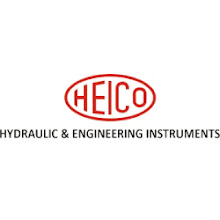A Compression Testing Machine (CTM) is an essential tool for evaluating the strength and durability of materials like concrete, bricks, metals, and other construction components. It applies controlled force to a sample to determine its compressive strength, ensuring materials meet industry standards. Understanding the benefits of using a compression testing machine can help industries improve material quality, safety, and efficiency.
1. Accurate and Reliable Strength Testing
One of the key benefits of using a compression testing machine is its ability to provide highly accurate and reliable results. By applying a controlled force to a material, the machine determines its ability to withstand pressure before failure. This data is crucial in industries like construction and manufacturing, where material integrity is essential.
2. Ensures Material Quality and Safety
A compression testing machine helps verify that materials meet required quality standards and safety regulations. This is particularly important in industries such as civil engineering, where faulty materials can lead to structural failures. Regular testing ensures only high-quality materials are used in construction and manufacturing.
3. Suitable for Various Materials
CTMs are designed to test a wide range of materials, including:
- Concrete
- Bricks
- Metals
- Plastics
- Ceramics
This versatility makes compression testing machines useful across multiple industries, from construction and automotive to aerospace and material research.
4. Helps in Research and Development
Many industries rely on research and development to innovate and improve materials. A compression testing machine plays a crucial role in this process by providing precise data on how different materials respond to compressive forces. This allows engineers and scientists to develop stronger, more durable materials for various applications.
5. Easy Operation and Automation
Modern compression testing machines come with automated controls, making the testing process easier and more efficient. Digital displays, computer integration, and advanced software allow users to set parameters, run tests, and analyze data with minimal manual intervention. This improves efficiency and reduces the risk of human errors.
6. Cost-Effective Material Testing
Investing in a compression testing machine helps industries save money by preventing the use of weak or substandard materials. By identifying material flaws before construction or manufacturing, companies can avoid costly failures, repairs, and legal liabilities.
7. Compliance with Industry Standards
Many industries have strict material testing regulations. A compression testing machine ensures compliance with standards such as:
- ASTM (American Society for Testing and Materials)
- ISO (International Organization for Standardization)
- BIS (Bureau of Indian Standards)
Meeting these standards is crucial for ensuring product quality, customer satisfaction, and regulatory approval.
Conclusion
The benefits of using a compression testing machine extend beyond just material strength evaluation. From improving quality control and safety to aiding in research and cost savings, CTMs are essential in various industries. For those seeking high-quality compression testing machines, Heico offers reliable, precision-engineered solutions that meet global testing standards.




0 Comments